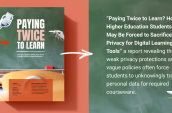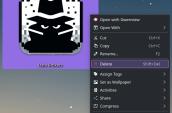For thousands of families across America, summer vacation is right around the corner. And thieves know it. According to the FBI, crime rates rise about 10% during summer months. The Privacy Rights Clearinghouse (PRC) urges you to stay safe by following these six privacy tips:
- Don’t broadcast your vacation. Always be cautious with the information you share on social networking and check-in sites, such as Facebook, Twitter and Foursquare. You wouldn't put a sign on your front door saying "Away on Vacation," so you shouldn’t do so electronically by publicly broadcasting your travel plans on a social networking site.
- Clean out your wallet and purse. Conduct a thorough clean-up of your wallet. Remove any unnecessary credit cards, your Social Security card, and other unneeded documents that could compromise your identity if lost or stolen. If you have a Medicare card, make a photocopy without the last 4 digits of your Social Security number. Photocopy or make a list of the remaining contents of your wallet. Keep it in a secure and locked location or with a trusted individual. To reduce vulnerability to having your checking account emptied, do not use or carry any debit cards (check cards) while on vacation. See PRC's Fact Sheet 32: Paper or Plastic: What Have You Got To Lose? to find out why debit cards are a bad choice for consumers. Leave your checkbook in a secure locked place at home. Use credit cards or traveler’s checks instead.
- Hold your mail and newspaper. Ask your Post Office or a trusted neighbor to hold your mail for you. Mail left in an unlocked mailbox is a goldmine for identity thieves. Mail and newspaper pile-up also sends a signal to potential burglars that your house is vacant.
- Plan ahead if you’ll need cash. If you plan on using an ATM card during your vacation, use one that does not have debit or check card privileges (one that always requires a PIN and does not contain a Visa or MasterCard logo). You can ask your bank to change an ATM/debit card to one that is "ATM only." It's best to use ATM machines found at banks or credit unions in well-lit areas. Be on the lookout for anything suspicious, including signs that someone has tampered with the machine. Know how to identify skimming devices on an ATM or point-of-sale terminal. You can read a great guide to skimming and PIN capturing at Group Security Commonwealth Bank of Australia's ATM Card Skimming & PIN Capturing - Customer Awareness Guide.
- Connect to the Internet with care. If you are bringing your laptop with you, be very careful using Wi-Fi networks to go online. Most Wi-Fi hotspots are unsecured and unencrypted, so you will need to take additional steps to protect your privacy. For additional information on using public Wi-Fi hotspots, see PRC's Fact Sheet 2: Wireless Communications. If you are using cyber-cafés, hotel business centers, or other public access Internet facilities, be aware that keyloggers (software that can track your keystrokes) may be tracking you. Public access facilities may use servers that aren’t encrypted. Therefore, you should avoid accessing any sensitive information from a public computer.
- Use the hotel room safe. Do not leave your wallet or any documents containing personal information in your hotel room unattended. Considering how many people have access, hotel rooms can be relatively unsecure.
Taking a few precautions before you travel and while you’re on the road can help you avoid an unpleasant incident that could ruin your vacation.


